12 tips to help you avoid food waste
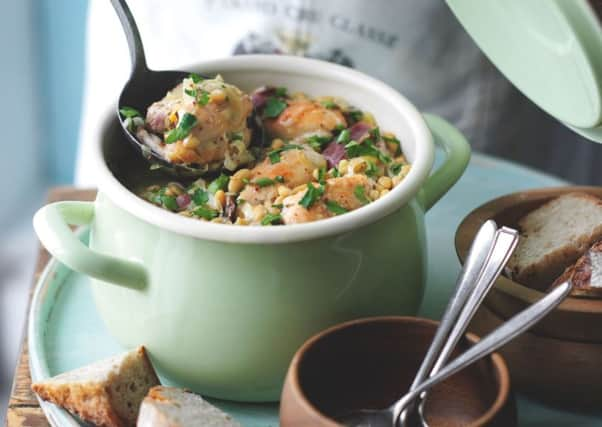

Not only that, it’s reckoned that almost two-thirds of this waste could have been avoided in the first place. Aside from hitting you in the the pocket, Scotland’s 630,000 tonnes of annual food waste also has an impact on the environment -
as it rots in landfill, it produces greenhouse gases, while all the resources used to grow it, feed it, water it and transport it have been wasted.
Advertisement
Hide AdAdvertisement
Hide AdSo what can you do about it? We spoke to some of Scotland’s top chefs to find out.
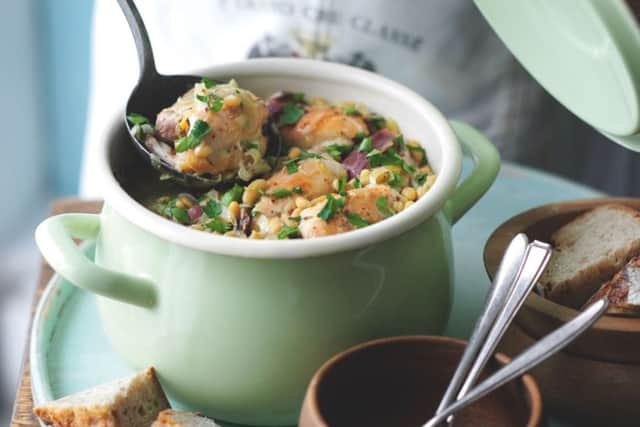

Make a meal plan
As with so much in life, proper planning can make all the difference, and saving on food waste starts before you even have the food.
Make a meal plan for the week ahead so you know what to get at the shops.
Graeme Pallister, chef-patron of the acclaimed 63 Tay Street Restaurant in Perth and former Catering Scotland Chef of the Year, advises taking leftovers into consideration, even at this stage: “Plan three bigger meals each week and then use the leftovers for smaller, lighter meals in between. For instance, a roast chicken on Sunday can be followed on Monday with a chicken risotto using chicken picked from the carcass.”
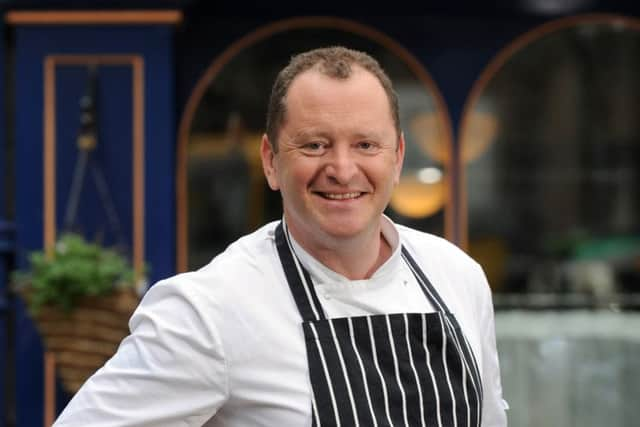

It’s also important to take social factors into account: “Consider whether everyone in the house will be dining at each meal,” he adds.
Don’t plan too far ahead - build a little room for manoeuvre into your plan - you never know when you might get waylaid at work, at a restaurant or a pub.
Shop smart
Once you’ve done your weekly meal plan, write your shopping list. Remember to check cupboards, the fridge and the freezer to see what you’ve already got in stock first. Graeme Pallister might be a famous chef, but he has some down-to-earth advice your mother might have already told you:
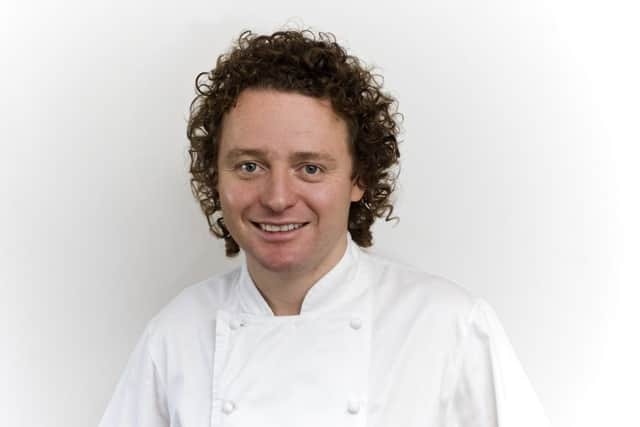

“Always shop on a full stomach. People tend to buy more when they’re hungry, which may end up as waste later in week.”
Advertisement
Hide AdAdvertisement
Hide AdBe careful with supermarket multi-buy offers - only take advantage of them if you know for sure none of it will go to waste. It’s best to shop for perishables such as greens, meat and dairy little and often.
Know your labels
“Use by” dates are serious - they are for your safety, so government advice is not to consume food or drink that’s past its “use by” date, even if it looks and smells fine.
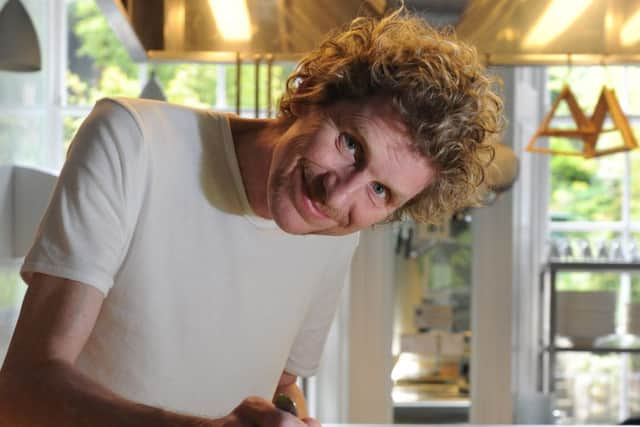

“Best before” dates, however, are not related to food safety - except when it comes to eggs.
Generally, best before dates should be considered as advice about when the food will be at its optimum taste and texture.
“Use within” dates do exactly what they say on the tin, but remember that even if the tin says “eat within three days”, if the “use by” date is before that, you do need to use it before then.
Get it right with leftovers
Don’t just freeze your leftovers - bag them up properly and label them with a date so you know when you need to have them. Don’t see leftovers as second-best - the beauty of using leftovers is that you’re getting to eat twice but only having to cook once.
Tom Kitchin of Michelin-starred Edinburgh restaurant The Kitchin is a devout believer in leftovers: “Always find a way to use your leftovers. It’s a philosophy I was taught from the very early days of my training and one I live by at the restaurant - absolutely nothing goes to waste. I believe produce should be respected and leftover ingredients are a great way of making delicious, cost-effective meals.”
Mix it up
If you get to the end of the week and you still have various bits and bobs that need using up,
Advertisement
Hide AdAdvertisement
Hide AdGraeme Pallister has some advice: “Try a ‘mix-up tea Friday’. I used to get these growing up - essentially it’s a way to use up all those odds and ends in the fridge. Everyone would get something different. It’s actually great fun, and means you can empty the fridge before your Saturday morning shop.”
Put the bin first
Paul Kitching, chef-proprietor of Michelin-starred Edinburgh restaurant 21212, turns things on their head to avoid waste.
“If there’s one thing in the bin, you’re getting the bin dirty,” he says. “It’s a backwards way of thinking about it, but it you want to keep the bins clean, don’t put anything in them!
“The only way to make a profit on food in a restaurant is to watch the waste carefully - we go through the bins with a fine-tooth comb - chefs have to tell us if they want to put something in it. So you need to translate that to the domestic environment. Ask yourself ‘why am I putting this in the bin?’ Make a mousse out of it, puree it, blend it, bake it.”
One-pot wonders
Tom Kitchin recommends taking the simple approach to use up leftovers. “One-pot wonders are a great way of making the most of leftover ingredients,” he says. “Not only can they be assembled and cooked quickly, you can create a wonderful flavour from combining all of the ingredients and letting them infuse together for delicious effect.
“If you are using leftover meat or fish, try adding lots of fresh seasonal vegetables and pulses to bulk out the dish.”
It also pays to be prepared, adds Kitchin: “Stock your store cupboard with a few essentials that can help make sure your dishes are full of flavour. Essentials like a good selection of herbs and spices, stock, garlic and seeds like fennel and caraway seeds can really help to enhance and add depth to your cooking.”
And there’s one more fringe benefit to the one-pot way, says Kitchin. “The beauty of this kind of cooking is that you cut back on the washing up!”
Milk it for all it’s worth
Advertisement
Hide AdAdvertisement
Hide AdMilk is the biggest victim when it comes to avoidable food waste in Scotland, accounting for more than a quarter of all the food wasted. Part of that might be down to the fact that very few people know that it can be frozen for later use - although because the flavour and texture will be slightly affected, it’s probably best to use in cooking rather than drinking straight. Or, rather than freezing it, if your milk is about to go out of date, try making a delicious rice pudding or even ice cream .
Use your loaf to save bread
Bread is second only to milk as Scotland’s most avoidably wasted food. Every year, Scottish households throw out a total of around 25,000 tonnes of the stuff, which is a shame because it’s one of the easiest foods to preserve.
“When you buy a loaf of bread, divide the slices into fours, cover in cling film and freeze them,” says Paul Kitching. “You can defrost them in the microwave.”
Meanwhile, slices which are past their best can easily be transformed into some British classics, advises Catering Scotland’s Chef of the Year 2014, Neil Forbes of Cafe St Honore in Edinburgh. “Bread that’s a few days old makes the best bread and butter pudding. Or simply toasted with cheese makes one of our best British dishes - if you feel more adventurous, turn it into a rarebit!,” he says.
By gently drying stale slices in the oven, then blitzing them in the blender, you can also make your own breadcrumbs, which can then in turn be used as an ingredient in a host of other dishes
including home-made sausages and burgers, fishcakes, pesto, soup and macaroni cheese.
Stock up
Don’t make the mistake of thinking that people who make their own stock are some kind of super-organised domestic gods/goddesses. It is literally as simple as dumping a lot of the stuff you would normally chuck into the bin into a big pot of cold water instead. That chicken carcass, potato peelings, mushroom stalks, onion skins - into the pot they go. Throw in some herbs, gradually heat the lot up, occasionally skimming off the foam from the top and within a couple of hours you will have your own unique home-made stock which you can portion up and freeze for later use. Of course, unless you have a roast dinner every evening, you’re not always going to have all those ingredients to hand at the same time. One clever trick is to keep a “broth bag” in the freezer - whenever you have some leftover vegetable peels, carrot ends, herb stalks, etc, just pop them into the bag to add to the stock pot at a later date.
Soup up your veg
“Make more homemade soup,” advises Graeme Pallister. “Apart from being very good for you and the family, it’s a brilliant way of using up vegetables and dried pulses that are hiding in the cupboards.”
Advertisement
Hide AdAdvertisement
Hide AdNeil Forbes agrees: “If there’s floppy veg in the bottom of your fridge, make a pot of soup, jazz it up with some dots of creme fraiche and some herbs - it will be delicious.”
Shop local
Buying from your local independent butcher or fishmonger is not only a way of helping local suppliers. It can also help you prevent waste, reckons this year’s Catering in Scotland Chef of the Year, Craig Wood. Craig, who runs The Wee Restaurant in North Queensferry, says: “Buy meat and fish from your local butcher or fishmonger who can trim and portion specifically for you. Most butchers and fishmongers are happy to assist with this.”
• For more information and resources, including a handy recipe-builder to help you make meals out of unused ingredients, head to greenerscotland.org .